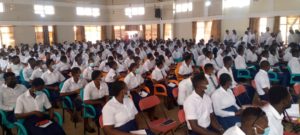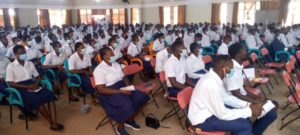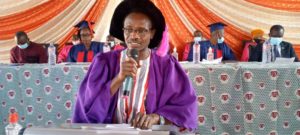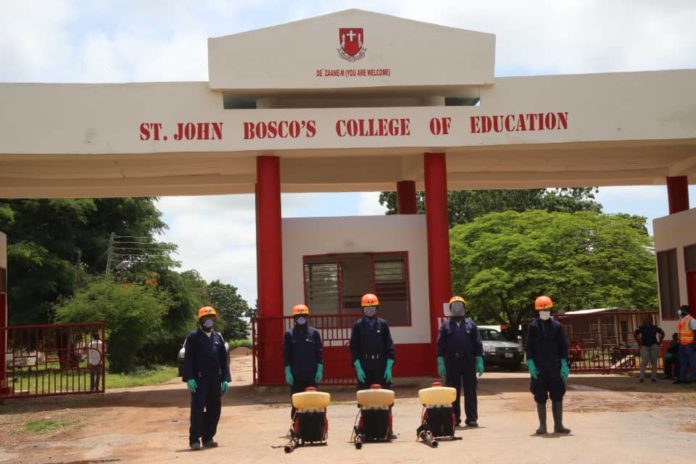The St. John Bosco College of Education (CoE), Navrongo in the Upper East Region has admitted and welcomed 528 fresh young people to pursue various educational programs in its 2021/2022 academic year.
The number comprises 193 females and 335 males as against a total of 597 students admitted last academic year which comprised 211 females and 386 males, which comparatively represents a 12% decline.
The ratio of both sexes, comparatively, in these two academic years represent an increase by 2% in the number of females and a 2% reduction in the number of males.
This, according to the school, is a painfully slow progress towards achieving its and the national target of 50% females and 50% males ratio, but believes that with the introduction of its plug-in programs which shall be targeting only females, it will sooner or later achieve it.


Speaking during the school’s 16th Matriculation Ceremony to welcome the fresh men and women into the institution to study various Bachelor of Education programs, the Principal of the school, Prof. Joseph Amikuzuno admonished the students to be cooperative and discipline to achieve their purpose in the school.
He said, “I ask for your corporation for us to live, learn, dream and grow together in knowledge, experience and wisdom. I ask for your cooperation to allow yourselves to be stretched to learn in and outside classroom from our tutors, staff and larger community”.
Prof. Amikuzuno added, “Let’s endeavor to be disciplined in every dimension. This institution is catholic and therefore discipline is absolutely necessary in living and studying here.”

He was, however, confident that being religiously dedicated to duty, the school’s staff will leave no stone unturned to elevate the minds and spirit of the students and exalt their courage in developing their God-given talents and self-confidence.
While assuring the students of a complete and unrestricted access to all the rights and privileges enjoyed by everyone in the school devoid of any form of discrimination, he entreated the staff to see the students as their own children or younger brothers and sisters, nephews and nieces and treat them as such.




